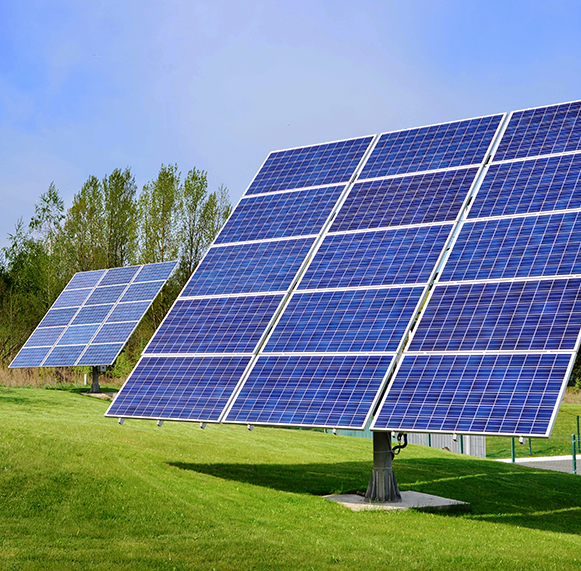Harnessing the Power of the Sun: A Comprehensive Guide to Solar Energy
Solar energy is a clean and sustainable source of power that harnesses the radiant energy emitted by the sun to generate electricity and heat for various applications. It relies on technologies like photovoltaic cells and solar thermal systems to convert sunlight into usable energy, offering numerous benefits, including reduced greenhouse gas emissions, energy independence, and lower operating costs. Solar energy plays a pivotal role in the global transition towards a greener and more sustainable future.
Applications/ Uses of Solar Energy.

In an era characterized by environmental concerns and a growing demand for sustainable energy sources, solar energy has emerged as a shining beacon of hope. The sun, a virtually endless source of energy, has captivated the attention of scientists, environmentalists, and policymakers worldwide. Solar power, harnessed through the use of photovoltaic cells and solar thermal systems, is not only a clean and renewable energy source but also a key player in the global transition towards a sustainable future. This article provides an in-depth exploration of solar energy, its various applications, benefits, and challenges, and its potential to reshape the energy landscape.
Meaning of Solar Energy
Solar energy refers to the radiant energy emitted by the sun, which is harnessed and converted into usable forms of energy, such as electricity or heat, for various applications on Earth. Solar energy is considered a clean and renewable energy source because it relies on the sun, which is an inexhaustible resource. Unlike fossil fuels, solar energy production produces minimal greenhouse gas emissions, making it a crucial component in efforts to combat climate change and transition to more sustainable energy sources.
The Basics/Types of Solar Energy
Solar energy can be harnessed and utilized in various ways, resulting in different types of solar technologies and applications. Here are some of the primary types of solar energy:
- Photovoltaic (PV) Solar Energy:
- Grid-Tied PV Systems: These systems are connected to the electrical grid, allowing excess electricity generated by solar panels to be fed back into the grid. Grid-tied PV systems are commonly used in residential and commercial settings to offset electricity bills and potentially earn credits through net metering.
- Off-Grid PV Systems: Off-grid PV systems are not connected to the grid and are typically used in remote areas or for standalone applications like cabins, RVs, and remote telecommunications equipment. They require energy storage, such as batteries, to provide power when the sun is not shining.
- Hybrid PV Systems: Hybrid systems combine solar PV with other power sources, such as wind turbines or backup generators, and often include energy storage to ensure a reliable power supply.
- Solar Thermal Energy:
- Solar Water Heaters: These systems use solar thermal collectors to heat water for domestic use or space heating. They come in various types, including flat-plate collectors and evacuated tube collectors.
- Concentrated Solar Power (CSP): CSP systems use mirrors or lenses to concentrate sunlight onto a small area, which then heats a fluid to generate steam. The steam drives turbines connected to generators, producing electricity. CSP is used in utility-scale power plants.
- Solar Pool Heaters: Solar thermal collectors can also be used to heat swimming pools, extending the swimming season and reducing heating costs.
- Solar Architecture:
- Building-Integrated Photovoltaics (BIPV): BIPV systems integrate solar panels directly into building materials, such as solar shingles, solar windows, and solar facades. These systems generate electricity while serving as functional architectural elements.
- Passive Solar Design: Passive solar design principles involve designing buildings to maximize natural sunlight for heating and lighting, minimizing the need for additional energy sources.
- Solar Lighting:
- Solar LED Street Lights: Solar-powered streetlights use photovoltaic panels to charge batteries during the day and provide illumination at night, reducing energy costs and enhancing safety in urban and rural areas.
- Solar Garden Lights: Solar-powered garden lights are used for decorative and functional outdoor lighting. They are equipped with small PV panels and rechargeable batteries.
- Solar-Powered Transportation:
- Solar Cars: Experimental solar cars use photovoltaic panels to charge batteries, allowing them to run on solar energy. While not yet practical for mass production, they showcase the potential for sustainable transportation.
- Solar Boats: Solar panels can be integrated into boats and ships to provide auxiliary power or even propel the vessel. Solar-powered ferries and boats are used in some regions for eco-friendly transportation.
- Solar-Powered Water Solutions:
- Solar Desalination: Solar energy can be used to power desalination plants, converting seawater into freshwater through solar distillation or reverse osmosis processes.
- Solar Water Pumps: Solar-powered water pumps are employed in agriculture, remote locations, and water distribution systems to pump water for irrigation, drinking, and sanitation.
Applications/ Uses of Solar Energy
Solar energy has a wide range of applications, making it a versatile and valuable resource in numerous sectors:
- Residential Solar Power: Solar panels installed on rooftops are a common sight in many residential areas. Homeowners can generate their own electricity, reducing their reliance on conventional grid power and potentially saving on utility bills.
- Commercial and Industrial Use: Businesses and industries utilize solar energy to power their operations. Large-scale solar installations can significantly reduce operational costs and carbon footprints.
- Agriculture: Solar-powered irrigation systems are becoming increasingly popular in agriculture. They help farmers efficiently water crops, improving crop yield and conserving water resources.
- Transportation: Solar-powered vehicles, including solar cars and solar-powered boats, are being developed as environmentally friendly alternatives to conventional fossil-fueled vehicles.
- Space Exploration: Solar panels are widely used in space exploration. They provide power to satellites, rovers, and spacecraft on long missions.
- Water Heating: Solar thermal systems are used to heat water for residential and commercial purposes, reducing the need for fossil fuel-based water heaters.
- Desalination: Solar energy can be harnessed to power desalination plants, converting seawater into freshwater, addressing water scarcity issues in arid regions.

Functions of Solar Energy
Solar energy serves various functions and can be applied in numerous ways to meet diverse energy needs. Here are some of the key functions and applications of solar energy:
- Electricity Generation: Solar photovoltaic (PV) panels convert sunlight directly into electricity. This electricity can power homes, businesses, and even entire grids when large solar farms are deployed. Solar power plants are increasingly integrated into the energy mix to provide clean and sustainable electricity.
- Heating and Cooling: Solar thermal systems use sunlight to heat water or other fluids, which can then be used for space heating, cooling, or domestic hot water in residential, commercial, and industrial buildings. Solar air conditioning systems are also emerging as an energy-efficient cooling solution.
- Water Heating: Solar water heaters are widely used to heat water for domestic use, reducing the need for conventional water heaters that rely on electricity or fossil fuels. Solar thermal collectors are installed on rooftops to capture and heat water.
- Irrigation: Solar-powered irrigation systems are employed in agriculture to efficiently water crops. These systems use solar energy to pump water from wells or other sources, reducing the reliance on fossil fuel-powered pumps and minimizing operational costs for farmers.
- Desalination: In arid regions or areas with limited freshwater resources, solar energy can power desalination plants, converting seawater into freshwater through the process of reverse osmosis. This provides access to clean drinking water and supports agricultural and industrial processes.
- Transportation: Solar energy is being used to power various types of solar vehicles, including solar cars, solar bikes, and solar boats. While these vehicles may not replace traditional modes of transportation entirely, they offer sustainable and eco-friendly alternatives.
- Space Exploration: Solar panels are essential for powering spacecraft, satellites, and rovers on missions to space. They capture sunlight in the vacuum of space and convert it into electricity to operate various scientific instruments and communication systems.
- Remote Power Generation: Solar energy is ideal for providing power in remote and off-grid locations where traditional electricity infrastructure is absent or impractical. Solar-powered microgrids, solar generators, and standalone systems can provide electricity to remote communities, research stations, and telecommunications equipment.
- Emergency and Backup Power: Solar-powered backup systems, often paired with energy storage solutions like batteries, can provide electricity during power outages and emergencies. These systems can keep essential appliances and medical equipment running.
- Educational and Demonstrational Purposes: Solar installations are sometimes used for educational purposes to teach students and the public about renewable energy concepts and technologies. Solar panels in schools and museums serve as real-life examples of clean energy generation.
- Environmental Monitoring: Solar energy is utilized to power sensors, cameras, and monitoring equipment in remote or environmentally sensitive areas. This enables continuous data collection and research without the need for frequent battery replacements.
- Aesthetic and Architectural Integration: Solar panels can be integrated into building designs, such as solar shingles and solar facades, to generate electricity while complementing the aesthetic appeal of structures.
Benefits of Solar Energy
The adoption of solar energy offers a multitude of benefits, both for individuals and society as a whole:
- Renewable and Sustainable: Solar energy is an infinite resource, ensuring a long-term and sustainable energy supply. Unlike fossil fuels, solar power won't deplete over time.
- Reduced Greenhouse Gas Emissions: Solar energy production produces minimal greenhouse gas emissions, contributing to the fight against climate change by reducing carbon footprints.
- Energy Independence: Solar power allows individuals and nations to reduce their dependence on imported fossil fuels, increasing energy security.
- Lower Energy Costs: Once installed, solar panels can significantly reduce electricity bills, providing a return on investment over time.
- Job Creation: The solar energy industry has created millions of jobs worldwide, supporting economic growth.
- Low Operating Costs: Solar systems have low maintenance and operating costs, making them cost-effective in the long run.
- Technological Advancements: Ongoing research and development in solar technology continue to improve efficiency and reduce costs, making solar energy even more accessible.
Challenges and Considerations
While solar energy holds immense promise, it is not without its challenges and considerations:
- Intermittency: Solar power generation is dependent on weather conditions and daylight hours, leading to intermittency. Energy storage solutions like batteries can address this issue to some extent.
- Initial Costs: The upfront cost of purchasing and installing solar panels can be substantial, although government incentives and decreasing technology costs are making it more affordable.
- Space Requirements: Large-scale solar installations require ample space, which may not always be readily available, especially in densely populated areas.
- Energy Storage: Effective energy storage solutions are needed to store excess energy for use during cloudy days or at night.
- Environmental Impact: The manufacturing and disposal of solar panels can have environmental impacts, though these are generally lower than those associated with fossil fuels.
- Aesthetics: Some people find solar panels unattractive, which can be a consideration for residential installations.
Solar energy has emerged as a beacon of hope in the quest for clean, sustainable, and renewable energy sources. With its numerous applications, environmental benefits, and potential to reduce energy costs, solar power is playing a pivotal role in transforming the energy landscape. While challenges like intermittency and initial costs remain, ongoing technological advancements and increasing adoption are making solar energy more accessible and efficient than ever before. As we continue to harness the power of the sun, solar energy is poised to lead the way towards a greener and more sustainable future for generations to come.



